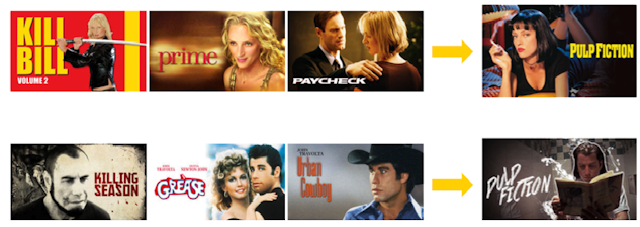Personalisation: the clock is ticking for brands
Personalisation might be the most important factor for marketers in 2018, according to a recent Salesforce study, which found that 52% of consumers would switch away from brands that don't personalise communications. In the same survey, 65% said that personalisation influences their brand loyalty.

How to effectively use personalisation to get ahead in 2018
What does effective personalisation look like? The best example is your Amazon homepage. Amazon uses algorithms to personalise your homepage, by tailoring product recommendations based on search and purchase history. While this seems obvious, most retailers are still showing a generic homepage for all logged-in users, irrespective of age, gender, and behaviour.
The importance of personalisation doesn’t apply only to e-commerce, but also to social networks. Instagram has overtaken Snapchat partly because of its ability to personalise your feed. Instagram will show you similar content to the posts you already engage with. Whereas, Snapchat shows content in chronological order, irrespective of your interests. Snapchat have admitted the need for a personalised algorithm in 2018, but it may be too little too late.
Facebook now owns the top four apps globally. But if we look closer, the top two apps aren’t social networking apps, they are messaging apps: WhatsApp and Facebook Messenger. What can we take from this? Messaging apps are the ultimate form of personalised communication. While less of an acquisition channel, they are a great opportunity for brands to increase customer loyalty and retention.

Mark Zuckerberg has recently announced that the Facebook newsfeed will start showing more personalised content and less news. This will have a few effects. First, brands can’t rely solely on organic social. Second, every brand requires a paid social strategy and should expect prices to rise as the auction gets more competitive year on year.
Netflix and personalisation
Another company that uses algorithms to personalise the user experience is Netflix. Netflix shows you movie recommendations based on the content you watch. However, the Netflix algorithm takes it a step further and personalises film covers.
For example, if they want to pique your interest in an unwatched title, say Pulp Fiction, they will tailor the film cover to show the lead actor or actress you are familiar with. If you watch Uma Thurman films, you will see the Pulp Fiction cover that features Uma Thurman. On the other hand, if you watch more John Travolta films, you will see a modified cover featuring Travolta. This is one way that Netflix differs from traditional television. Netflix doesn’t have one product, but over 100m products tailored for every member.

Make users feel individual
What do you do if you work in a business which doesn’t have the resources or algorithms to give customers a personalised experience? The simplest way is through language. The most powerful word in marketing (after the word ‘free’) is the word ‘you’. We respond to you-orientated language because it feels personal.
Visit your Amazon homepage and count how many instances of the word ‘you’ you find. We found nineteen: ‘your recommendations’, ‘your orders’, ‘your wish list’, etc. This simple writing technique is something every business can harness to bring even more humanity to the user experience. The best part: it’s free!
Aydin Moghaddam is head of PPC at Roast
Content by The Drum Network member:

ROAST
We are ROAST.
Our goal is simple, to increase the return on your advertising spend (ROAS).
We do this by simplifying the problem and moving forward...

